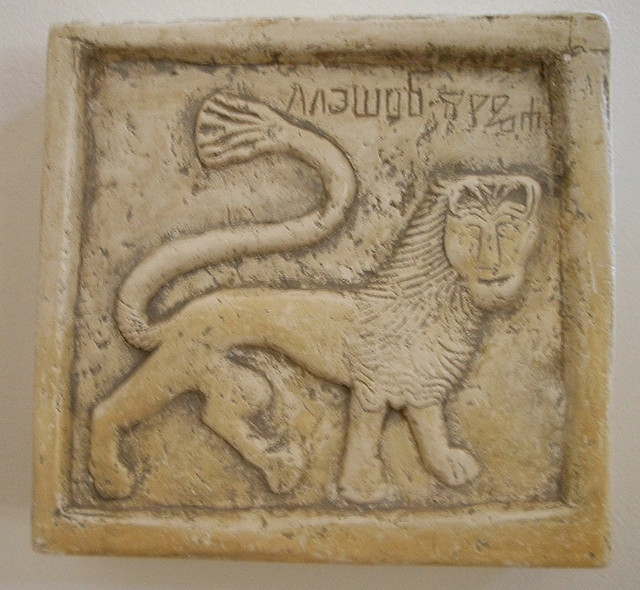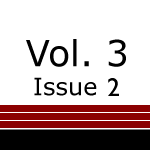Residual Nations and Cyber Yugoslavia: Speech Acts and Nationality in the Internet Age
Contested independence in Sudan, Kosovo, and South Ossetia demonstrates that national identities change frequently and violently. According to J. L. Austin, new nations are formed by declarative acts of independence, but, with increasing digital access, the Internet allows nations to continue to exist in a state of “nonplay” with political reality. One example, Cyber Yugoslavia (CY), recreated Yugoslavian identity during the country’s political collapse (1991-2006). By declaring itself a nation through speech acts alone, the website was able to mimic nationhood while simultaneously offering its “citizens” a participatory role that no political nation could duplicate. While CY existed, it enacted and exceeded the role of national identity, and it suggested how the Internet transforms our understanding of nationhood.
We are living in a world of young nations. But, when a nation becomes independent from a colonial power or central unifying government, a post-nation nationality remains. Additionally, although declarations of independence are often militarily contested, ultimately the state is independent because someone said so—because of a speech act. And, if one group declares independence, then it is possible for another group invokes the residual nation to resist. This resistance was evident in Yugoslavia’s recent collapse. Slovenia and Croatia declared independence in 1991. Bosnia and Herzegovina, Macedonia, Montenegro, and Kosovo followed rapidly; eventually, there was no country that was called “Yugoslavia” (translated as “place of the southern Slavs”) because there were no united southern Slavs. However, on the ninth of September 1999, the founders of the website Cyber Yugoslavia (CY) performed a declaration/counter declaration of independence in creating a virtual country complete with bureaucracy, national symbols, and many additional trappings of a physical country. Through the new medium of the Internet, a form of “Yugoslavia” could continue to exist beyond the tumultuous Balkan secessions.
CY was an “Internet democracy.” Scholars of Internet democracy have stressed the importance of critical reading skills (Warnick), new forms of interaction (Poster), grassroots initiative (Schmidtke) and community identity (MacKay and Powell) in computer-mediated forms of political expression; yet, little research has been done on how new political entities—not just organizations but actual nations—might be formed and exist exclusively on the Internet. In this article, the CY movement reinvigorates speech act theory, demonstrating that through the Internet, groups can deny or “nonplay” a nation’s declaration of independence, preserve a residual national identity, and create new nations that defy our typical understandings of nationhood. Although Austin’s theories are by no means new, it is worthwhile to return to his original propositions, some of which, like “nonplay,” have been neglected. Austin’s theories are particularly useful in juxtaposition with Jacques Derrida’s contributions to speech act theory and Pippa Norris’ research into how the Internet both “bridges” and “bonds” its participants. Austin’s original speech act theory helps explain CY’s existence as an actual entity, which is a powerful example of the way digital spaces will redefine our political world.
Nationalism, Post-nationalism, and Residual Nationalism
Yugoslavia is a prime example of residual nationhood—though a relative latecomer to national identification. Andrew Baruch Wachtel reported how most eighteenth-century Balkans identified with their villages and not with ethnic or language group (88). Nationalist identities were hard-won and soon lost to post-national projects that aimed to transcend ethnic differences without the ambition of empire. The Pan-Slavic movement (1848-1918) tried to unify multiethnic populations while communism (1946-1991) aimed to unite Yugoslavs not only with each other but also with the proletariat anywhere. Yugoslavs were expected to be post-national. Yugoslavia almost skipped nationalism, moving from local to pan-national identification. Further, communism and Pan-Slavism were primarily utopian ideologies that sought to not only change nations but also redefine nationhood. Transnational scholar Benedict Anderson pointed out that some entities, like the Soviet Union, “refuse nationality” and are both “legatee of the prenational dynastic states” as well as “precursor of a twenty-first century internationalist order” (2).
When Yugoslavia’s post-national projects began to crumble, identity again underwent upheaval. When borders fall around sedentary populations, the people become part of a “new diaspora”—isolated from their national identity because their nation-state simply ceases to exist. Nationalism theorist Michael Mandelbaum contrasted those diasporas that “were created when people moved” to new diasporas that “were created when the borders moved” (2). CY preserves Yugoslavia for a new diaspora. It is important to emphasize that CY is not trying to restore the previous political government; instead, they provide an outlet for those whose identities had been suddenly and radically altered.
The “Misfired” Independence
The founders of CY created an alternate space for Yugoslavia to continue to exist because they said so. Saying is a kind of doing, which is not always successful. J. L. Austin emphasized that some acts are “purported but void” because of misinvocation of a speech act (18). In other words, sometimes nothing “happens” after a speech act is completed because of inappropriate circumstances or authority. Often a speech act misfires because inappropriate “persons . . . in a given case” have made it (15). When the founders of CY established their virtual country, they did not make any claims about their authority; they did not even tie their real names to the project. A strictly geographic understanding of nationhood would call CY a misinvocation, an independence that did not happen; yet, through the political nonexclusivity of the Internet, CY was able to declare their existence alongside the complete collapse of political Yugoslavia.
But, the founders of CY did not just create a new country; they also denied the independence of the formerly united republics. Declarations can be denied top-down from empires, and loyal individuals may protest from the bottom-up by continuing to identify with the old regime. In these objections, there is an element of what Austin called “nonplay”: a vaguely felt “presence of some bar . . . against its ever being accepted” (31). Nonplaying denies a speech act, regardless of its technical legitimacy. Nonplay does not protest an action; it denies that one took place. Yugoslavs, uneasy with each republic’s secession, demonstrated nonplay when they resisted independence, calling themselves Yugoslavs and failing to recognize the newly independent country. Cyber Yugoslavia nonplayed Yugoslavia’s disintegration while creating a new version of the country with very different characteristics and rules.
When a residual nation challenges a contested independence, it continues to exist in Derridean trace form.1 Sometimes that trace is explicit,2 as in the creation of Cyber Yugoslavia. Through that trace, the old way of understanding one’s identity continues beyond national collapse, perhaps expressing itself in a parallel digital world.
Inventing Nationhood
CY’s website declares3 “This is Cyber Yugoslavia. Home of Cyber Yugoslavs.” Immediately, the drafters have established three important things: First, they have—by speech act—created such a thing (a place?) as Cyber Yugoslavia. Second, this new nation presents a case of what Austin calls “getting away with things” (30); while traditional nations vie for land and citizenship, CY does not have to. It is an entirely different sort of nation, one that enjoys nonexclusivity of resources and participation. Finally, it provides a “home” for Cyber Yugoslavs who have “lost [their] country in 1991 and became citizens of Atlantis” (Cyber Yugoslavia). In this, CY provides an expression of identity that both suspects and supports nationality. It recreates a national identity and redefines a previously utopian nationalism as an Internet utopianism. These three moves demonstrate how the Internet can “do things with words,” which Austin did not anticipate. Internet nationalism can recreate transformed residual nations for new diasporas. If CY can create a nation without land, can bypass bloody revolution, and can protect a threatened national identity through establishing an Internet community, then it challenges the necessity of “real” countries providing similar benefits. CY demonstrates a post-nation digital nationality.
This Internet nationality requires all its citizens, whether former Yugoslavs or interested observers, to actively opt in through what Pippa Norris’s study of online communities calls “bridging” and “bonding.” Norris found that most Internet groups emphasize bonding (10-11), but both practices are present in CY: as people who have “lost [their] country,” CY reunites them—bonding them as Yugoslavs—at the same time that it bridges groups that were supposedly oppositional during the 1990s. Additionally, CY creates a third kind of space; they accept not only citizens of the former Yugoslavia but also all nationalities in nonexclusive citizenship. Expats, immigrants, and people who have no cultural, linguistic, or ethnic connections to Yugoslavia are all welcome to join CY.
CY’s speech act emulates nationhood in declaring itself into existence while maintaining a unique political and military nonengagement. As Derrida pointed out, one of the pivotal questions of independence is “who signs, and with what so-called proper name, the declarative act which founds an institution?” (“Declarations” 8). Do signers need the authority of the people, as Austin suggested (18), or should they create their authority, as Derrida said (9-12)? In CY, however, the signers declare independence only for those who opt in to citizenship. Instead of assuming authority over others, these founders invited others to join them. This contrasts sharply with the political new diaspora who became involuntary citizens of a new country.
But, is Cyber Yugoslavia a joke? Certainly it mocks the process of declaring independence, writing a constitution, and running a bureaucracy, but being a joke does not make CY any less a declarative country. Derrida claimed that we cannot exclude unserious speech from functioning as speech acts (Limited 34). It is irrelevant whether CY is mocking the newly independent Yugoslav nation states because the speech act has taken place. Cyber Yugoslavia exists.
From the words “This is Cyber Yugoslavia,” it existed. The founders staked a claim on a site (website rather than geographic site) and declared its existence. Further, they do not offer only one generative performative but also extend “CY citizenships and CY passports” to applicants. These documents do not provide political protection but validate identification with the project, allowing for dual or treble citizenship. CY encourages all to apply because “regardless of your current nationality, . . . you will be accepted.” Unlike political nations, anyone who wishes to join, can join—whether former Yugoslavs seeking to bond, expats seeking to bridge, or serendipitous websurfers.
Additionally, CY does not just mimic the performatives that an ordinary country can provide for all of its citizens; it expands the constitutive powers of its citizens. Each citizen of CY must become part of the government. Unlike political nations that depend on participation through representation, all CY citizens are cabinet members. As part of the application process, aspiring citizens must propose their cabinet positions. Of course, most of these positions are fatuous commentaries on bloated bureaucracies.4 But, the moderators take these ridiculous positions seriously enough that they personally review each application to avoid duplication of “the meaning of each secretarial position.” Through moderators listing someone as a citizen, two declarative acts take place: that person is a citizen of Cyber Yugoslavia and that person is a member of Cyber Yugoslavia’s governmental bureaucracy.
Each citizen of CY not only maintains a position in the created government but also contributes to the collective identity of CY. Cyber Yugoslavia does not have one national anthem or flag—it has any anthem or flag that citizens want to suggest and that the moderators approve. Its constitution, too, is similarly manifold. This citizen participation allows for many correct responses to questions like “What are the symbols of Cyber Yugoslavia?” CY demonstrates social action beyond bridging or bonding. Citizens are cocreators of CY. They have even more agency than, for example, Wikipedia’s contributors5 because changes accumulate rather than compete. Additionally, all citizens can define the site by choosing the national symbols and core values of CY.
This level of involvement is possible only through computer-mediated communication. Henry Jenkins highlighted the ease of such participation in Internet civics, and Oliver Schmidtke pointed out that, on the Internet, the costs of participation are low and collective identities are easily formed. CY makes it easy to join, demanding no taxes, military service, or exclusivity. Only collective identity matters, which is formed through actors’ effortless contributions to the nonexclusive bank of symbols. This kind of civic involvement and multiplicity cannot be (or is not) supported in most “real” countries—CY has too many government positions and no real responsibilities, rights, or benefits.
But, that is not the point of CY either. Cyber Yugoslavia was founded to exist. To this end, it is appropriate that CY boasts more than 16,000 citizens but cheerfully describes its size as zero square kilometers. Its stated aim is to collect five million citizens, at which point its moderators will “apply to the UN for member status. When this happens we will ask for 20 square meters of land anywhere on Earth to be our country. On this land, we’ll keep our server” (Cyber Yugoslavia). In this statement, the moderators parody traditional notions of nationhood: that a nation must have supranational validation and land, neither of which is necessary for CY. Their zero kilometer country mocks the fierce territorial wars in Yugoslavia. CY shows the strength of their collective identity in their numbers—but without “serious” purpose. Cyber Yugoslavia does not seek territory or recognition; it only wishes to accommodate all those who “feel Yugoslav” and to validate that Yugoslav is a way to feel, a way to interpret oneself in the absence of an actual political identity.
An Internet Yugoslavia that replaces a politically recognized one captures two zeitgeists of the end of the twentieth century. One was the anxiety caused by the violent collapse of a powerful post-national identity into ethnically determined—but not ethnically uniform—regions. The other powerful zeitgeist championed the Internet to provide a voice for the voiceless and a home for the homeless. This sense that the Internet could right all political and social wrongs has since faded. As anthropologists Wilson and Peterson have pointed out, despite the opportunities that the Internet provides rhetoricians and other scholars, there has been no complete revolution of politics or identity (462). Cyber Yugoslavia resists Yugoslavia’s collapse through the same post-national ideals that originally inspired Yugoslavia’s creation.
However, CY demonstrates some of the naïveté of its era. Cyber Yugoslavia, like all Internet-based sites of community, is essentially exclusive. While its main page promises that anyone can join, simply being a website limits citizenship. As with other websites, technological access (and, in CY’s case, an ironic sense of humor) invites only a certain type of “tourist” and “citizen.” Further, CY operates primarily in English rather than in the Bosnian, Serbian, or Croatian language.6 While CY aspires to unite all people who “feel Yugoslav,” they cannot quite achieve that ideal.
End of a (Cyber) Nation
By 2003, the last remnant of the political country called “Yugoslavia” was re-appellated as Serbia and Montenegro and then dissolved into two separate countries. For five years, the only Yugoslavia was Cyber Yugoslavia, but the project of reclaiming Yugoslavia became increasingly futile. CY lost its momentum. The site has not been updated since mid-2008 and is now one of the millions of websites kept alive only through Internet archives. Even CY has disintegrated.
Perhaps there is no longer the anxiety to maintain a Yugoslav identity. But, during the politically turbulent turn of the twenty-first century, CY provided a space for national and post-national identity to be recreated and then fundamentally altered through the Internet medium. Speech act theory elucidates how CY was able to assert independence and citizenship while allowing more participation and nonexclusivity than any physical country could, especially than could the splintering Balkan nations. CY represents not only the optimism of the era but also suggests that as civil war and contested independence continue today, the Internet could provide a place where, at least temporarily, residual nations can exist and transform.
Endnotes
- Cf. “Writing and Difference” and “Of Grammatology.” return
- Sometimes the trace is more subtle, as in nostalgia for old patriotic songs, holidays, and programs. In fact, a popular form of music is “Yugo-nostalgia,” which mourns the breakup of Yugoslavia. return
- “Jugo” represents the Croatian, Bosnian, and Latin Serbian spelling of Yugoslavia. return
- For example, one citizen is “Secretary of a Couple of Guys Named Victor.” return
- Wikipedia was gaining traction at the same time as CY. return
- None of my quotations have been translated. There are, however, links to Dutch-Serbocroatian and English-Serbocroatian dictionaries on the bottom of the home page. return
Works Cited
- Anderson, Benedict. Imagined Communities. New York: Verso, 1983. Print.
- Austin, J.L. How to Do Things with Words. 2nd ed. Cambridge, MA: Harvard UP, 1975. Print.
- Cyber Yugoslavia. Cyber Yugoslavia, 9 Sept. 1999. Web. 6 Dec. 2010.
- Derrida, Jacques. “Declarations of Independence.” New Political Science 7.1 (1986): 7-15. Web. 8 Oct. 2010.
- —. “Limited Inc. A B C . . . .” Trans. Samuel Weber. Limited Inc. Ed. Gerald Graff. Evanston, IL: Northwestern UP, 1988. Print.
- Jenkins, Henry. “Photoshop for Democracy.” Convergence Culture: Where Old and New Media Collide. New York: New York UP, 2006. 206-39.Web. 20 Feb. 2012.
- MacKay, Hugh, and Tony Powell. “Connecting Wales: The Internet and National Identity.” Cyberspace Divide: Equality, Agency, and Policy in the Information Society. Ed. Brian Loader. London: Routledge, 1998. 203-16. Print.
- Mandelbaum, Michael. Introduction. The New European Diasporas: National Minorities and Conflict in Eastern Europe. By Mandelbaum. New York: Council on Foreign Relations, 2000. Print.
- Norris, Pippa. “The Bridging and Bonding Role of Online Communities.” The International Journal of Press/Politics 7.3 (2002): 3-13. Web. 12 Feb. 2012.
- Poster, Mark. “CyberDemocracy: Internet and the Public Sphere.” Reading Digital Culture. Ed. David Trend. London: Blackwell, 2001. 201-18. Print.
- Schmidtke, Oliver. “Berlin in the Net: Prospects for Cyberdemocracy from Above and Below.” Cyberdemocracy: Technology, Cities, and Civic Networks. Ed. Roza Tsagarousianou, et al. London:Routledge, 1998. 60-83. Print.
- Wachtel, Andrew Baruch. The Balkans in World History. New York: Oxford UP, 2008. Print.
- Warnick, Barbara. Critical Literacy in a Digital Era. Mahwah, NJ: Lawrence Erlbaum, 2002. Print.
- Wilson, Samuel M., and Leighton C. Peterson. “The Anthropology of Online Communities.” Annual Review of Anthropology 31 (2002): 449-67. Web. 2 Feb. 2012.





 Mary Hedengren is a PhD student at the University of Texas at Austin. Her rhetoric interests converge around national identity formation, Kenneth Burke, and the rhetoric of poetics.
Mary Hedengren is a PhD student at the University of Texas at Austin. Her rhetoric interests converge around national identity formation, Kenneth Burke, and the rhetoric of poetics.